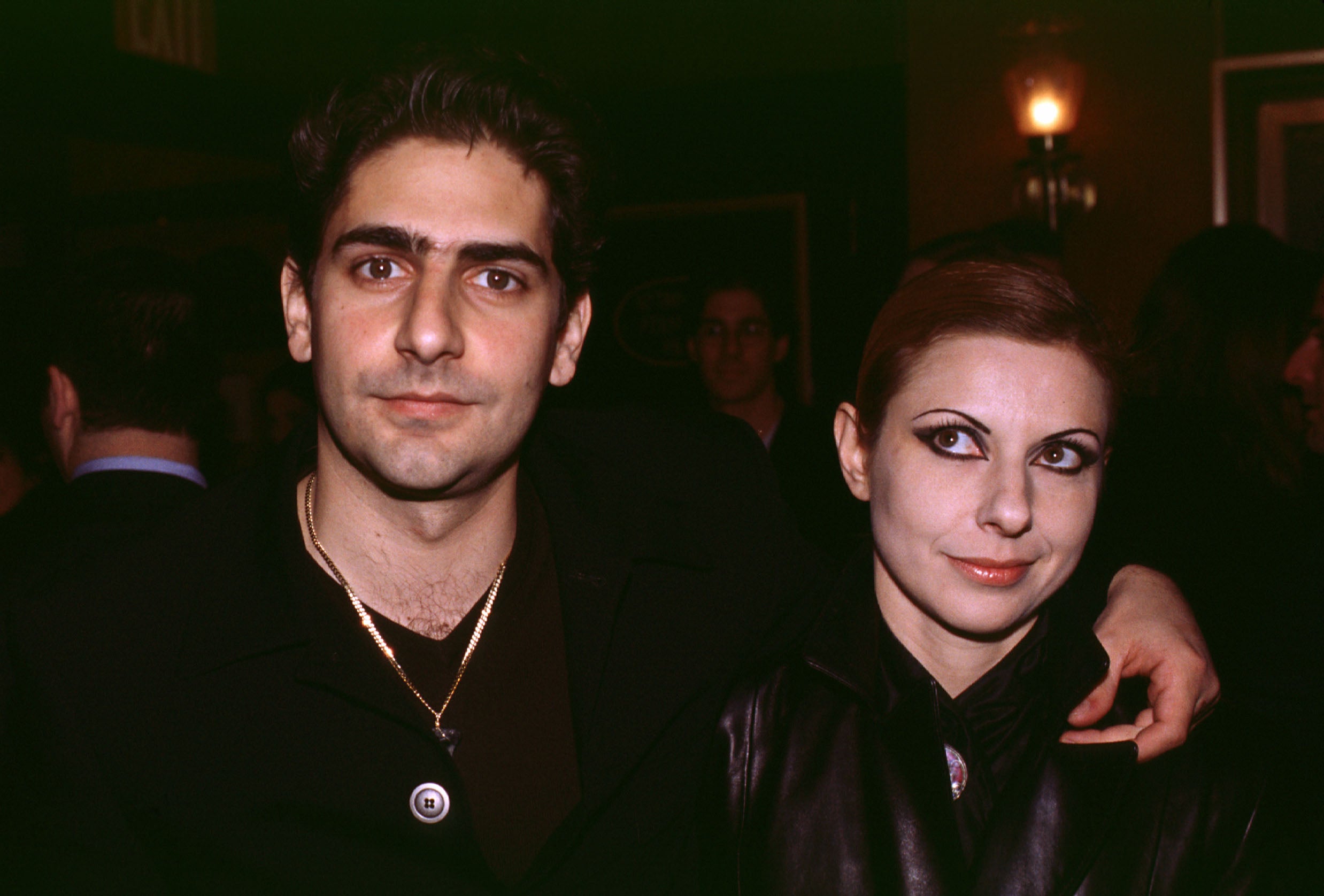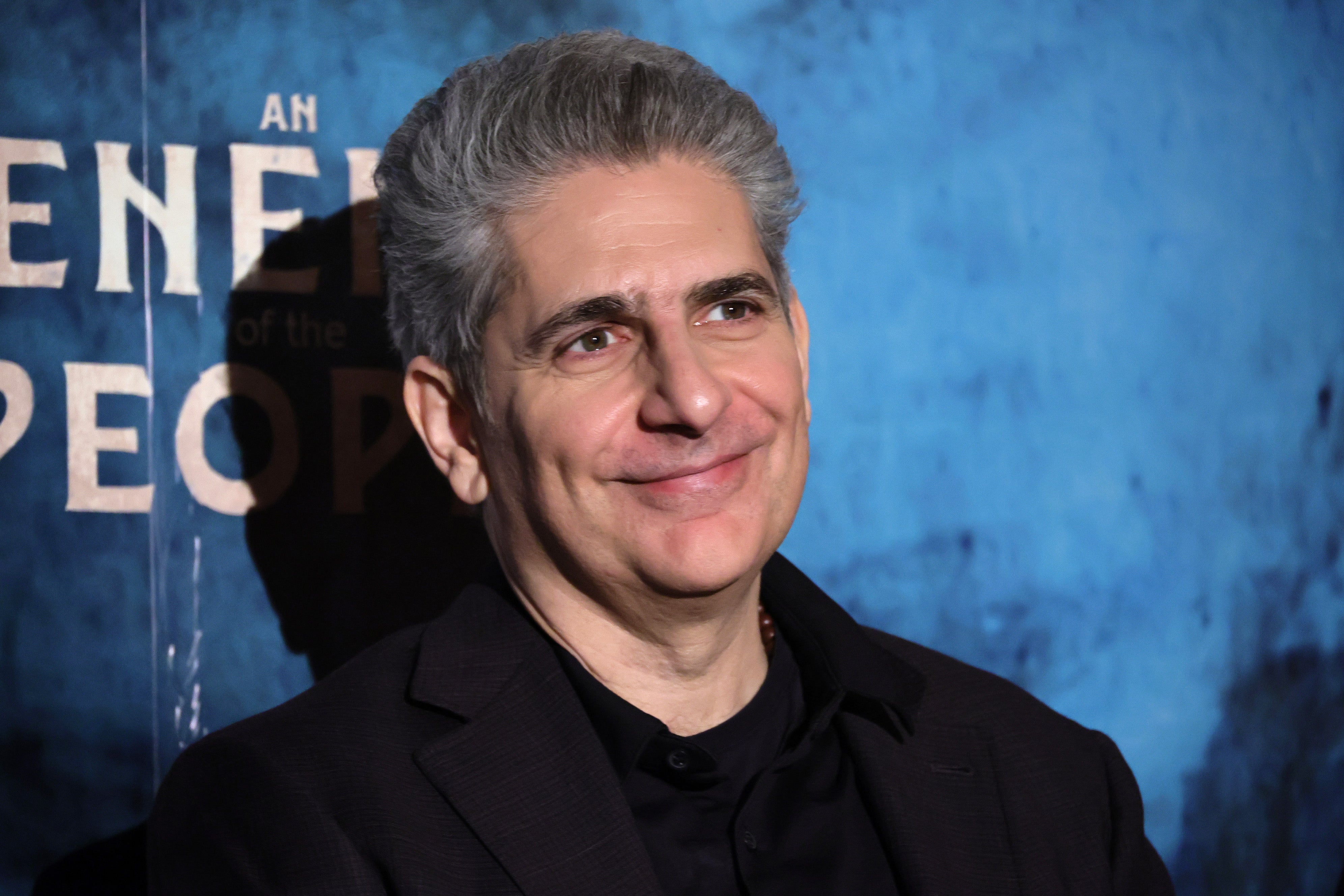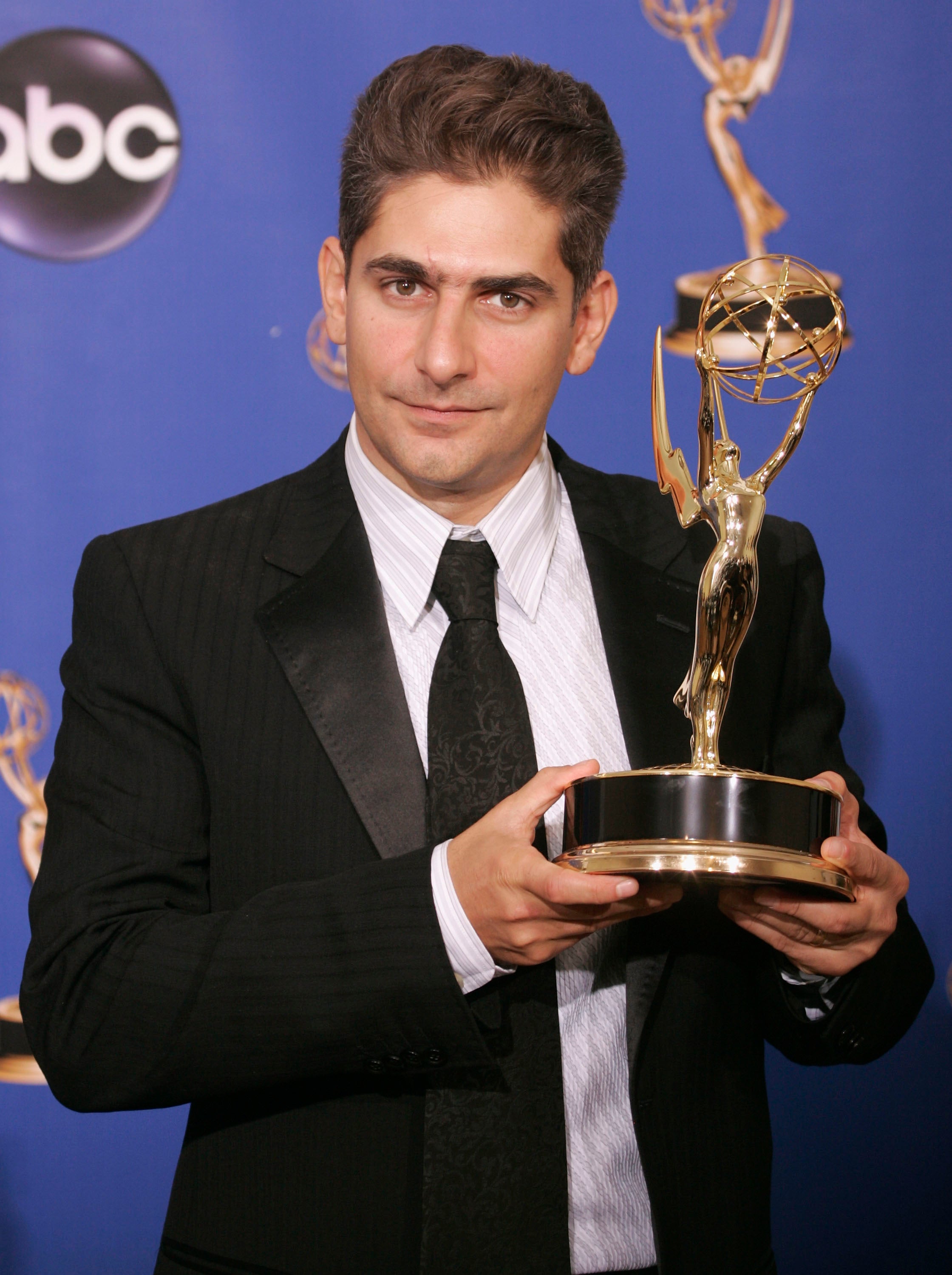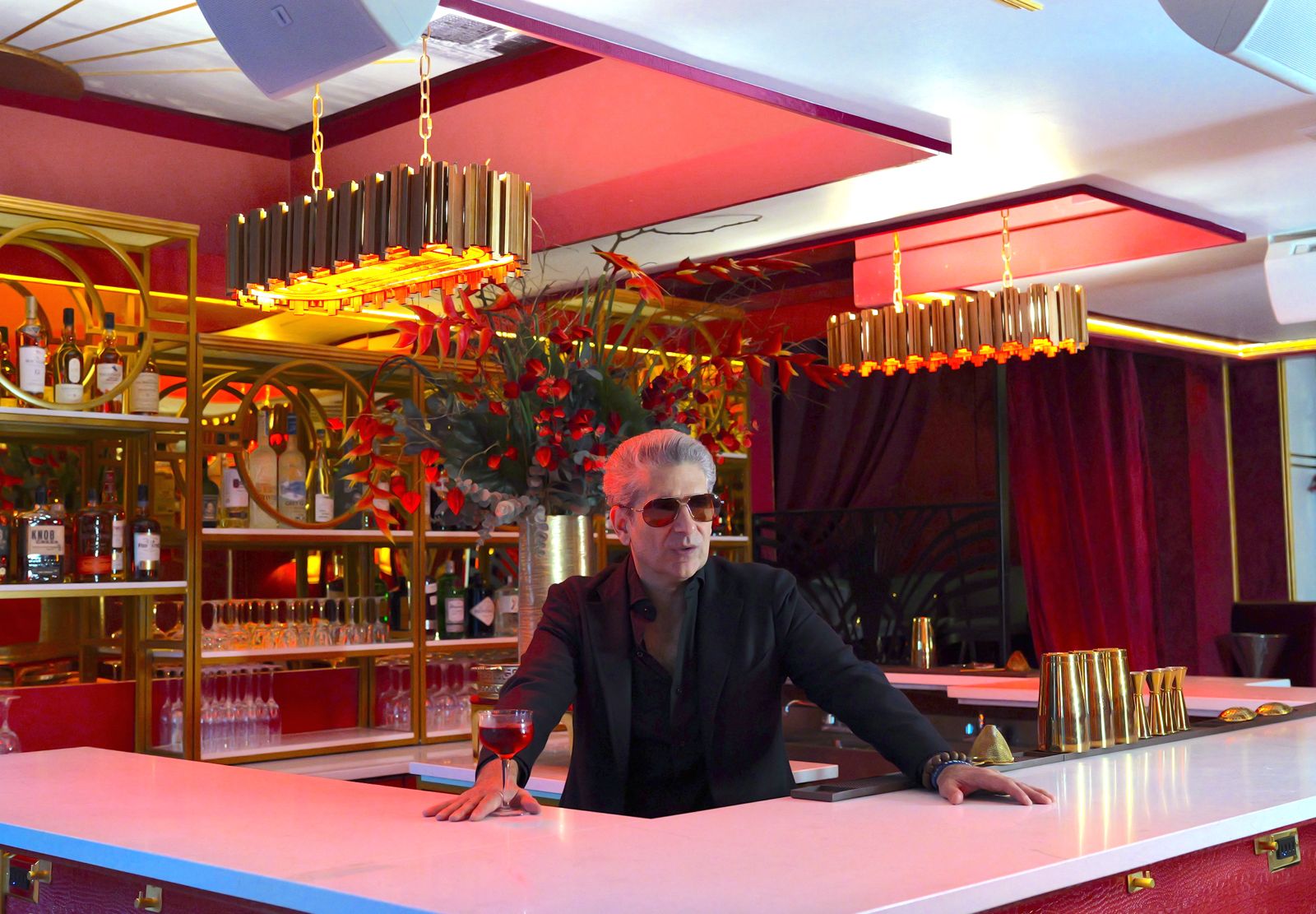‘New York became my college’: Michael Imperioli on his new bar, Broadway debut, and the city that saw him grow
The Sopranos and White Lotus star and his wife, interior designer Victoria Imperioli, sit down with Clémence Michallon at the newly opened Scarlet Lounge


Talking to Michael Imperioli in a bar is a funny twist of fate. His best known characters have terrible luck in them. The young Spider in Goodfellas dies while serving drinks. In The Sopranos, if the volatile Christopher Moltisanti finds himself in a bar, he’s likely overplaying his hand while trying to ascend to the top of Tony Soprano’s crew. And in The White Lotus, the tormented Dominic Di Grasso is next to a hotel bar when he realizes his son is involved with the same sex worker he’s been seeing.
But there is nothing foreboding about the Scarlet Lounge, the bar the actor and his wife Victoria Imperioli opened in Manhattan recently. The Upper West Side spot is elegant and full of personality – courtesy of Victoria’s work as an interior designer. Four days after its unveiling, and with two hours to go until the doors open to customers that evening, the Scarlet Lounge echoes with the sounds of doors opening and closing, conversation, and the occasional power drill.
The bar, a partnership between the Imperiolis and restaurateur Jeremy Wladis, seems like a natural result of the Imperiolis’ return to New York after years in Santa Barbara, California.
“When we came back here, it reminded me of what New York was like when I was a teenager,” Michael, who grew up in the inner suburb of Mount Vernon, says during a sit-down at the cocktail bar. “I like the history here. I love the beauty, the parks. We both feel like that.”
To research Michael’s career is to become familiar with the fact that he has pursued everything, forever. He was a teenager when he decided he wanted to be an actor. He considered university, but enrolled in the Lee Strasberg Theatre & Film Institute, an acting school in Manhattan.
“New York, in a way, became my college,” he says. “The cultural, social, artistic life that the city offered was my education. It became my inspiration for whatever work I was doing. Being part of a lineage of actors who come from New York – all that informs the work in a huge way.”

The Imperiolis met in the 1990s in Chelsea, where Victoria owned the bar Ciel Rouge. They operated it together until the mid-2000s. “At one point, we lived above it, which I don’t recommend to anybody – owning a bar and living upstairs like [Humphrey Bogart]’s Rick in Casablanca,” Michael says with a laugh.
In that same time period, he had his Emmy-winning turn in The Sopranos and established himself as an actor and screenwriter. He and Victoria married and raised three children together. From 2003 to 2010, they ran a theater – Studio Dante, also in Chelsea, until corporate funding ran out following the economic collapse of 2008.
“[Victoria] built that as well,” Michael says. “It was a very beautiful theater. It looked like a theater from a hundred years ago, but it was from scratch.”
Victoria’s aesthetic is the common thread in all three projects – Ciel Rouge, Studio Dante (where she was also the set designer), and now the Scarlet Lounge. If you’ve watched the tour of the Imperiolis’ apartment published earlier this year on Architectural Digest’s YouTube channel (where it has racked up 1.5 million views), then you will recognize her style: profuse, artful, infused with historical and architectural influences. Victoria’s most recent project was the historic Wiltern Theater in Los Angeles, for which she conducted an extensive redesign and renovations.
“It’s what America gave birth to – Deco and jazz,” she says, sitting next to Michael on a bench that – like the rest of the bar’s decor – she designed. “It’s so inspiring. New York is filled with Deco stuff, we just don’t realize it. It’s everywhere in our lives.”
The Imperiolis have been married for almost three decades; their three children are now grown. Michael has said in interviews how much he has enjoyed their lives as empty nesters. It has coincided, on his end, with a sort of professional renaissance – though, as an NPR headline aptly put it, he never went away.
During the pandemic, he and his colleague Steve Schirripa started Talking Sopranos, a podcast in which they revisited the show episode by episode. He earned a pending Emmy nomination for his work as Di Grasso in The White Lotus. His rock band, Zopa, tours regularly. He and Victoria are both practicing Buddhists and host weekly free meditation classes on Zoom.
In February, he will unlock another echelon of the New York art scene when he makes his Broadway debut in a production of An Enemy of the People, by the Norwegian playwright Henrik Ibsen, alongside Jeremy Strong (Succession) and Victoria Pedretti (The Haunting of Hill House, You).
The last time he was in a play was years ago, at Studio Dante. “You know, it was strange, because despite doing a lot of plays and even having a theater, I was never quite part of the loop of actors who were regularly cast in plays,” he says. “I told my agent when I moved back to New York that I really wanted to do something in theater, and then Covid happened, and there was no theater for quite a while.”
When An Enemy of the People came up, it was a no-brainer. “I’d never worked on Broadway, which is one of the few things I’d always wanted to do,” he says. “I don’t have a lot of bucket list things, but that was one of them.”
His delight is obvious when he describes prepping for the play with the head of the vocal department at Juilliard, the prestigious performing arts school.
“Saying, okay,we’re going to work at Lincoln Center today, as a kind of student at Juilliard, something I never did – it’s very meaningful and inspiring to me,” he says.

Michael may be new to Broadway, but he has always been an impressive actor. Take this scene in The White Lotus, when his character, the sex-addicted Dominic Di Grasso, whose shame sticks to him like a second skin, is told by a young sex worker that he is “very handsome.”
On Dominic’s face, we see the initial pleasure elicited by the compliment, then the knowledge that the woman behind said compliment is paid money to make him feel good. After that, there is a strange sort of peacefulness with that knowledge, a sense that Dominic has spent time with his demons and is no longer surprised when they visit him. Imperioli conveys all that without opening his mouth – until Dominic delivers a resigned “thank you”.
That proficiency is what makes it so baffling that – by his own admission – he rarely gets asked about acting (the work, the craft) in interviews. Part of it, he thinks, is because people equate being an actor with being a celebrity. And the craft may seem falsely accessible.
“It’s one of the only art forms where you can take someone who’s never, ever done it, put them in front of a camera, and – if you’re a good enough director – get a performance out of them,” he says. “You can’t do that in ballet” – he laughs – “or classical music, or theater. Forget it.”
So what does it feel like to be a working actor? A movie or TV set, he says, is a hectic environment, where everyone has a specific job to tend to, and think only of their own duties.
“You have to allow all that chaos to go on, and then kick into being really private, centered, and concentrated, and behave in an imaginative way as if nobody else is there – nearly making imaginary circumstances real,” he says.

He singles out the actor Gena Rowlands, for her performances in the 1974 A Woman Under the Influence and the 1977 Opening Night (both by John Cassavetes), and how she plays two very different, tormented characters.
“She does it not by gaining 50 pounds, or putting on a prosthetic, or changing her accent, or even speech patterns per se. She’s moving her center of gravity somehow,” he says. “That kind of thing takes a very keen sensitivity and understanding of human nature.”
That sensitivity is a quality he has also brought to his work as a writer. As a young man, he trailed a stack of unfinished projects from one apartment to the next. He wrote five episodes of The Sopranos between the show’s second and fifth seasons. In 2018, he published his first novel, The Perfume Burned His Eyes, a coming-of-age story in which a teenage boy finds an unlikely mentor in Lou Reed – yes, the musician and singer.
The book partly sprouted from Michael’s real-life friendship with Reed, which grew despite an inauspicious first meeting. Michael had just been cast in the 1996 movie I shot Andy Warhol, about Valerie Solanas and her attempted murder of Warhol in 1968. Michael was set to play Ondine, an actor and real-life friend of Warhol and Reed. Michael, who had seen Reed in the Village, where they both lived, but had never dared approach him, spotted him at a Knicks game. He knew Reed wasn’t pleased about the film, but introduced himself anyway.
“He goes, ‘I think it’s despicable they’re making a movie about that crazy b***h,’” Michael recounts, affecting Reed’s displeased tone. “I said, ‘I know, I get it. I’m playing a friend of yours, Ondine.’ He went, ‘Good luck,’ and walked away. I was so embarrassed.”
But Reed looked back, waved him over, and put his arm around the young actor. “He was like, ‘Listen. Just work really hard. Do a good job. And remember: [Ondine] was very funny,’” Michael says.
Around the year 2000, he and Reed met again, at one of Reed’s concerts. That night, Reed was “lovely” and pulled him into a hug. Reed, like the Imperiolis, was involved in Tibetan Buddhism. His and Michael’s friendship remained active and meaningful until Reed’s death in 2013, at the age of 71.
At that time, Michael had already begun work on The Perfume Burned His Eyes, but Reed wasn’t a character in it. “When he died, it hit me on a number of levels – as a friend and as a New Yorker, and as an artist and a fan,” he says. “And I suddenly had the idea to put him in the book as an influence on this kid.”
Debuting as a novelist was a great time. “I’m a big fan of fiction, especially new fiction,” he says. “I read a lot of new books. It’s the first section I go to in a bookstore. So doing book events, book fairs, and meeting fellow fiction writers was a cool world to be immersed in for a while.”

More than a fan, Michael, as it turns out, is the perfect reader that book people (authors, agents, and people in the publishing industry) would design if they were given the power to do so. He reads voraciously (Victoria says he goes through four to five books a week, though he insists his actual numbers are lower), exclusively on paper, and he posts about the books he loves on Instagram. (Recent favorites have included Meg Howrey’s They’re Going To Love You, Coco Mellors’s Cleopatra and Frankenstein, and Ocean Vuong’s Time is a Mother.)
He loves independent bookstores, “because they’re like temples”, including The Strand in New York, Books & Books in Coral Gables, and the sprawling Furet du Nord in Lille, France.) He gravitates towards new literature, and he has made a conscious decision to read books by women, after realizing that he read mostly male authors in his twenties and thirties.
“I like stuff that’s New York,” he says. “I like stuff that’s about art. For some reason, I like stuff that’s about mental illness. I’m not really sure why. I also like memoir. And stuff about love.”
As large as New Jersey (where The Sopranos is set) has loomed over Michael’s career, New York feels like the glue that has held it all together – the acting, the music, the writing, the bars (old and new), and the theater. They have “so much artistic family” there, Victoria says. For example, Sam Gold, who is directing An Enemy of the People, once did a play with Studio Dante.
With the Scarlet Lounge, the Imperiolis hope to take an active part in the life of their neighborhood, and of the city that has see them blossom as people and as working artists.
“People should feel a little bit of relief from the pressures of ordinary life, of being banged up all the time by the news, by life, by things,” Victoria says.”There is a culture to the place as well. I’m hoping we’ll get that through the cocktails, the food, and live music. Just for enjoyment. What else is there?”
Join our commenting forum
Join thought-provoking conversations, follow other Independent readers and see their replies
Comments
Bookmark popover
Removed from bookmarks